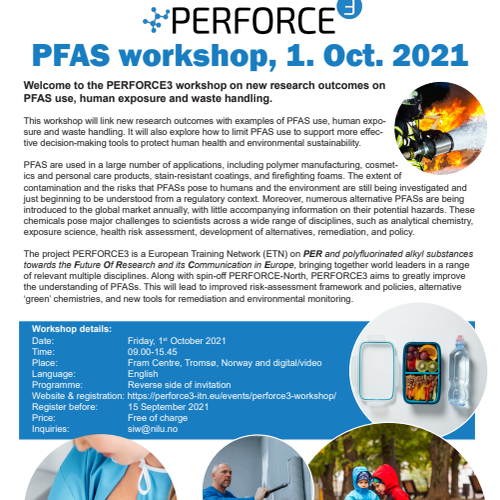27 August 2021 news
This workshop will link new research outcomes with examples of PFAS use, human exposure and waste handling. It will also explore how to limit PFAS use to support more effective decision-making tools to protect human health and environmental sustainability.
PFAS (Per- and polyfluoroalkyl substances) are used in a large number of applications, including polymer manufacturing, cosmetics and personal care products, stain-resistant coatings, and firefighting foams. The extent of contamination and the risks that PFASs pose to humans and the environment are still being investigated and just beginning to be understood from a regulatory context. Moreover, numerous alternative PFASs are being introduced to the global market annually, with little accompanying information on their potential hazards. These chemicals pose major challenges to scientists across a wide range of disciplines, such as analytical chemistry, exposure science, health risk assessment, development of alternatives, remediation, and policy.
On October 1st 2021, NILU invites you to participate in a hybrid workshop (both digital/video and at the Fram Centre in Tromsø, Norway), presenting recent research findings and information by stakeholders on PFAS use, waste management, regulation and more.
For more information and registration:
https://perforce3-itn.eu/events/perforce3-workshop/
After submitting your registration, you will receive a confirmation email. Please let me know if you have any questions.
Participation in the workshop is free of charge, but registration is compulsory.
It is possible to attend the workshop either online or in person at NILU’s conference facilities at the Fram Centre in Tromsø, Norway.
Registration deadline: September 15, 2021

